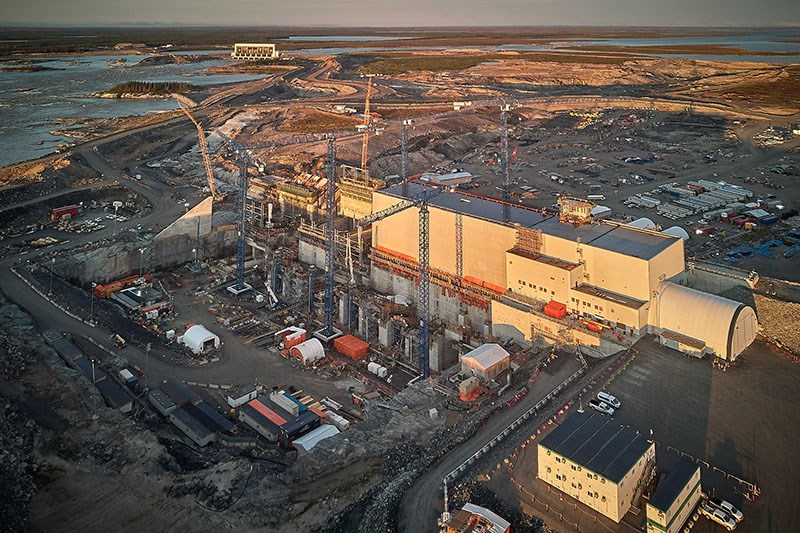A former Saskatchewan premier’s economic review of Manitoba Hydro’s Keeyask generating station and Bipole III transmission line found that government support for the projects to fulfill electricity export contracts and the type of contract used for the dam contractor contributed to them exceeding their combined budget by billions of dollars.
Brad Wall’s Economic Review of Bipole III and Keeyask Commission report was released by the provincial government Feb. 26, more than three months after it was delivered to them.
It says that the former NDP government’s support for the projects helped ensure they got started and continued despite the economic case for them, particularly Keeyask, being based on demand assumptions that didn’t come true.
The commission also found that the cost-reimbursable contract for the construction of Keeyask transferred risk from the contractor to Manitoba Hydro and was not adequately overseen.
“These projects will deliver new generation to the southern grid and in time there will be value,” Wall said in a press release. “However, they were not needed when approved and have significantly eroded Manitoba Hydro’s financial health. Further deterioration related to the projects has been mitigated in recent years by active and effective management.”
Despite their apparent support for the projects and approval of the electrical export contracts that created the need for the additional power Keeyask would generate and a way to transmit it, the NDP government did not oversee the projects effectively and passed the financial burden for their decisions onto Hydro’s customers in the form of increasing rates, the commission found.
“The findings of the Economic Review on Bipole III and Keeyask confirm what Manitobans have long suspected: the former government interfered in the development of these projects and that, as a result, Manitobans have been left with a massive debt burden as the owners of Manitoba Hydro,” said Crown Services Minister Jeff Wharton.
Agreements signed with four First Nations to develop Keeyask will also deliver less than anticipated at the time they were signed because of the changing market conditions for energy exports and the increased cost of the dam’s construction, Wall’s report said.
Manitoba’s NDP criticized the report a month before it was even released publicly, noting that it cost a million dollars that could be put to better use elsewhere in the midst of the COVID-19 pandemic
The Canadian Union of Public Employees Local 998, which represents about 900 of Hydro’s workers, said Wall’s suggestion that future projects like this be constructed through public-private partnerships (P3s,) to ease the financial burden of potential cost overruns on the utility’s customers, would not be beneficial to Manitobans.
“Private, for-profit corporations in P3s aren’t participating in projects for the public good, they are there to make a profit,” said CUPE 998 president Michelle Bergen. “At the end of the day no private company would ever take on risk associated with building hydroelectric dams in Northern Manitoba without the expectation of significant private profit, and Manitobans will be the ones paying for that profit with even less accountability.”




